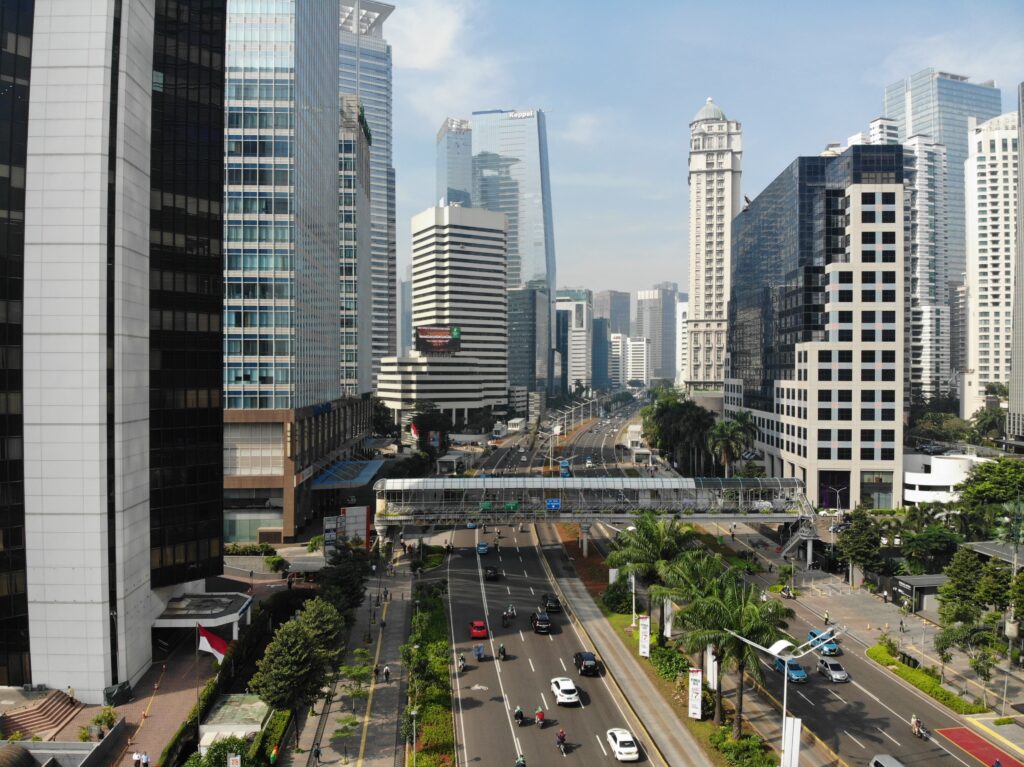
China: Our Eyes on the Ground
Since 2016, China’s dynamic blend of technology, scale, and culture has been my passion. Join me as we explore its transformative landscape and four standout aspects.
While Indonesia has long been overshadowed in the startup stakes by its more established neighbour, Singapore, this thriving economy is now beginning to make waves in the international community, alongside fellow ‘CIVETS’ nations – Colombia, Vietnam, Egypt, Turkey and South Africa – because of its exciting investment opportunities.
Despite the fact that Indonesia’s population is scattered across a staggering 15,000 separate islands, Indonesia has, over the last two decades, demonstrated steady growth – averaging around 5 percent per year – and surprising economic resilience to become the largest economy in Southeast Asia and the third-fastest-growing G20 member. Indonesia has grown in significance largely because it provides a fertile ecosystem for entrepreneurs – its capital, Jakarta, now features at number 39 in the top 500 cities list for startups, having vaulted 121 places on its 2017 ranking.

So, what makes Indonesia so special?
10 facts about Indonesia’s startup culture
1. Indonesia has a vast internal market that’s ready to embrace innovation: With more than 130 million people online and smartphone users numbering in excess of 63 million, mobile-related startups have a receptive audience.
2. Compared with Singapore, Indonesia’s startup ecosystem is far less saturated – offering abundant opportunities for entrepreneurs, especially those in the fintech, ecommerce, software-as-a-service (SaaS), and service sectors.
3. Indonesia can claim several unicorns among its startup community, including ride-sharing company GO-JEK ($9.5 billion), travel booker Traveloka, ($2 billion) and internet marketplace Tokopedia, ($7 billion).
4. Indonesia is the second-largest recipient of venture capital (VC) in Southeast Asia and is gaining ground on regional leader, Singapore. VC investments in Indonesia hit $136 million in 2017 – up from just $2.3 million three years earlier.
5. Indonesia’s low cost of living, compared to other Asian countries, gives entrepreneurs an edge allowing available funds to be spent on business development and not sky-high rents.
6. The Indonesian government is supportive of startups: an initiative was launched in 2016 to create 1000 techpreneur-led businesses worth $10 billion by 2020.
7. Indonesia is home to a number of international startup accelerators, including The Founder Institute, GnB Accelerator and SKALA, offering new businesses ready access to seed capital, mentorships and partnerships.
8. The Indonesian island of Bali is already a renowned hotspot for digital nomads. It hosts the world’s largest remote work conference, Running Remote, providing the training and tools needed to empower professionals to succeed in the remote workplace.
9. A recent report by Google-Temasek predicts that the Indonesian internet economy will grow to $100 billion by 2025.
10. The Indonesia Blockchain Hub provides a national platform for networking and knowledge sharing. This has encouraged the emergence of fintech startups – like mobile wallet provider KinerjaPay and digital lending platform Kredivo – to help solve ecommerce challenges.
Technology and innovation are playing a key role in boosting Indonesia‘s economy, helping to propel it to powerhouse status in the region. While its startup infrastructure may lag behind neighbouring countries like Singapore and Malaysia, its government has shown willingness to back innovation that’s steadily showing returns.
As a result of inward investment, a wave of startups has begun to emerge, together with a growing talent pool of dynamic, tech-savvy founders and employees. If it continues to reward entrepreneurship, Indonesia – and in particular its capital, Jakarta – has the potential to carve itself a leading position on the global startup map in the years to come.


Since 2016, China’s dynamic blend of technology, scale, and culture has been my passion. Join me as we explore its transformative landscape and four standout aspects.

Italy is renowned for its timeless elegance and passion for speed, making it the perfect destination for those who appreciate both fashion and automobiles.
Join our mailing list to stay up to date and get notices about our new programs!
11 Leadenhall Street, Fifth Floor, London EC3V 1LP, UK
Join our mailing list to stay up to date and get notices about our new programs!